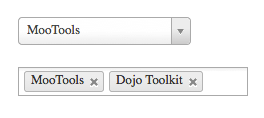Implementing an Array.count() Method in JavaScript
As much as I write about MooTools on my blog, I spend most of my work day knee-deep in PHP. As you probably know, one way to get the size of an array in PHP is to use the count() function:
echo count($my_array);
In JavaScript, the way to get the size of an array is to use the length property, like this:
alert(my_array.length);
For some reason, I absolutely hate the ".length" way of retrieving the length of an array. For this reason, I've implement the count() method into JavaScript:
Array.prototype.count = function() {
return this.length;
};
The count() habit is difficult to break, so why try?
![Welcome to My New Office]()
My first professional web development was at a small print shop where I sat in a windowless cubical all day. I suffered that boxed in environment for almost five years before I was able to find a remote job where I worked from home. The first...
![Creating Scrolling Parallax Effects with CSS]()
Introduction
For quite a long time now websites with the so called "parallax" effect have been really popular.
In case you have not heard of this effect, it basically includes different layers of images that are moving in different directions or with different speed. This leads to a...
![jQuery Chosen Plugin]()
Without a doubt, my least favorite form element is the SELECT element. The element is almost unstylable, looks different across platforms, has had inconsistent value access, and disaster that is the result of multiple=true is, well, a disaster. Needless to say, whenever a developer goes...
![MooTools Wall Plugin]()
One of the more impressive MooTools plugins to hit the Forge recently was The Wall by Marco Dell'Anna. The Wall creates an endless grid of elements which can be grabbed and dragged, fading in elements as they are encountered. Let me show...





Thanks for your blog. you offer great advice and tutorials and for some odd reason, if I am looking to see how to complete a task, you have a tutorial on it or at least an idea on the concept I am trying to achieve; so thanks David. Although this post came about 2 days too late. :)
Do you do this for strings as well?
@Binny: No, I don’t. Just arrays.
This is all fine and well, but length is fundamentally different from count.
Take the following example:
var myArray = [‘one’, ‘two’, ‘three’];
// myArray.length == 3, as we would expect
var myOtherArray[100] = ‘one’;
//myArray.length == 100, NOT 1
Even though we only have 1 item in the array, ‘length’ refers to the largest index + 1. Unlike PHP where we can use numeric keys and strings for indexes in an ad hoc way and still get an accurate count via count(), in JS it’s not quite the same.
In a way, this is just splitting hairs, but a lot of people already don’t understand JS’s length property, and referring to it as “count” only serves to further the confusion.
Correction to my previous post:
the second code snippet would be:
var myOtherArray = [];
myOtherArray[100] = ‘one’;
and its length property would actually return 101.
That’s right and that’s what I was expecting when searching for count on js. This should do it:
function count(array) { var c = 0; for(i in array) // in returns key, not object if(array[i] != undefined) c++; return c; }Riv, thats a much better form of the count use. Its surprising that this is not built into javascript.
Array.prototype.count = function () { for (k in this) { if (this[k].constructor !== Function) { this.length++; } }; return this.length; }I think it’s okay for personal project but it has a counter side when you are in enterprise. The maintainability is harder when people use custom extension (prototype existing framework object). It cane be confusing. In some case, I have seen people creating function to simply get an object inside an array. I think this should be used with parsimony. But, it’s just my opinion…
Array.prototype.count = function () { var counter = 0; // Initializing main counter for(i in this) // Looping through elements if(typeof this[i] != "undefined") // If empty it's undefined counter++; // Counting not empty elements return counter-1; // Excepting own function }This is a working one. It counts function elements too.
I’ve just bumped into learning Js, I try to be as attentive as possible but, I don’t find a way. So, may any one help me how to understand Js programming.
Array.prototype.count = function (a) { var c = 0; for(var i = 0; i < this.length; i++) { if(typeof(this[i]) !== "undefined") { if(typeof(this[i]) == "string" && this[i].length == 0) { } else { c++; } } } return c; }OR
count = function (a) { var c = 0; for(var i = 0; i < this.length; i++) { if(typeof(a[i]) !== "undefined") { if(typeof(a[i]) == "string" && a[i].length == 0) { } else { c++; } } } return c; }Wow, no functionality to edit comments? What is this, the year 2001?
Querying the length is faster than invoking a method, but the habit of using
.count()is interesting.In python is used
len([1, 2, 3])function to get the count, so the JavaScript’s length is not so bad :).